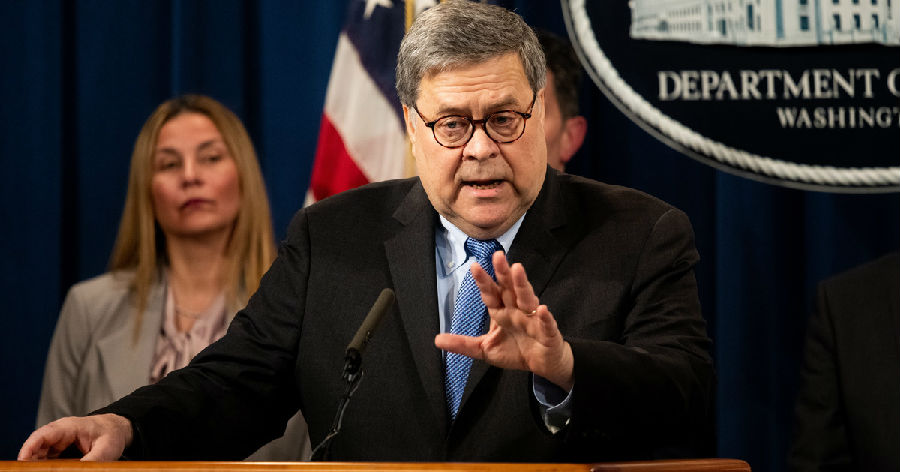JUDY WOODRUFF: Those of us who use smartphones find they have become central to our lives, and they contain an enormous amount of our personal information. They're also at the heart of an escalating fight between the U.S. Department of Justice and Apple. William Brangham explores this latest battle over privacy and security.
WILLIAM BARR, U.S. Attorney General: This was an act of terrorism.
WILLIAM BRANGHAM: On December 6, a gunman opened fire at a Naval air station in Pensacola, Florida, killing three sailors and wounding eight others. After a 15-minute shoot-out with security officers, the gunman, who was carrying two Apple iPhones, was killed, but not before he tried to destroy the phones.Attorney General William Barr:
WILLIAM BARR: The shooter disengaged long enough to place one of his phones on the floor and shoot a single round into the device. It also appears the other phone was damaged.
WILLIAM BRANGHAM: Now those phones are at the center of a standoff between the Department of Justice and Apple. Barr asserts investigators need access to the phones to determine if the killer collaborated with anyone and to determine if there are any planned future attacks.
WILLIAM BARR: Thank you very much.
WILLIAM BRANGHAM: Barr didn't cite any evidence of other collaborators. But the killer's iPhones are locked. And, six years ago, Apple stopped helping the government unlock its devices, and it also beefed up the phones' security systems. Apple argues data privacy is a paramount issue, saying "Americans do not have to choose between weakening encryption and solving investigations". Apple says it's turned over a significant amount of data from the shooter's phones. But the government argues there may be more on the devices themselves.
MAN: You can see officers with long guns here.
WILLIAM BRANGHAM: This all echoes a debate from 2015. After a gunman and his wife went on a rampage in San Bernardino, California, killing 14, Apple defied a court order to unlock an iPhone belonging to one of the shooters.
JAMES COMEY, Former FBI Director: We still have one of those killers' phones that we have not been able to open. And it's been over two months now. We're still working on it.

WILLIAM BRANGHAM: Back in 2014, Apple made it so that an iPhone could only be opened with the device's personal password, which is set by the owner. Even Apple can't break the code. In the San Bernardino case, the FBI paid an undisclosed third party reportedly more than $1 million to crack the phone open. Experts say the FBI might try this method again now with the Pensacola case. Last month, the Senate Judiciary Committee held a hearing exploring the key issues at stake. Erik Neuenschwander, director of user privacy at Apple, argued that creating a backdoor into their devices would open Pandora's box.
ERIK NEUENSCHWANDER, Director of Privacy, Apple: Encryption is the underlying technology providing information security in all modern systems. We do not know of a way to deploy encryption that provides access only for the good guys, without making it easier for the bad guys to break in.
WILLIAM BRANGHAM: New York City's district attorney, Cyrus Vance, testified that law enforcement needs to have occasional legal access to a suspect's phone.
CYRUS VANCE, Manhattan District Attorney: The single most important criminal justice challenge in the last 10 years is, in my opinion, is the expanded use of mobile devices by bad actors to plan, to execute, and to communicate about crimes. Allowing private companies in Silicon Valley to continue to insert themselves as the unregulated gatekeepers of critical evidence is dangerous, it's bad public policy.
WILLIAM BRANGHAM: Law enforcement is urging Congress to act to provide a legislative solution to this conflict. They're citing Pensacola as an urgent example of the need for the law to keep up with rapid changes in technology. But there's no movement yet to get it to the president's desk. For the PBS NewsHour, I'm William Brangham.












